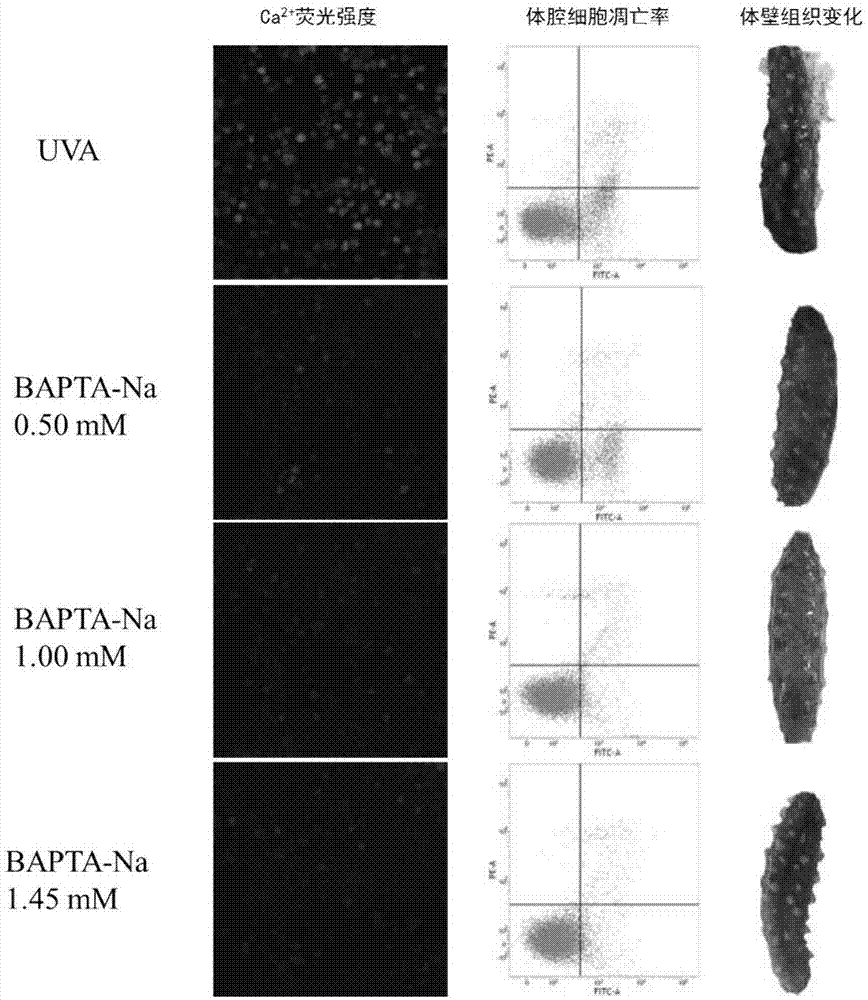Method for delaying autolyzing of body wall of stichopus japonicus
A technology of autolysis and ginseng, applied in fish farming, application, animal husbandry and other directions, can solve the problems of short survival time, complicated operation, autolysis, etc., to delay the autolysis of body wall and inhibit cell apoptosis. Effect
- Summary
- Abstract
- Description
- Claims
- Application Information
AI Technical Summary
Problems solved by technology
Method used
Image
Examples
Embodiment approach
[0018] Detection of BAPTA-Na half-lethal concentration: take body cavity fluid near 1 / 3 of the anus of sea cucumber, mix equal volumes of body cavity fluid of 9 sea cucumbers, filter with 300-600 mesh filter cloth, take 100 μL of fresh body cavity fluid in 96 In the well plate; add 0.00-2.00mM calcium ion chelator BAPTA-Na with different gradients; add 10μL MTT solution to each well, and incubate at room temperature for 3-5h; add 100μL Formanzan solution to each well, and incubate at room temperature in the dark 3 to 5 hours; use a multi-functional microplate reader to measure the absorbance at 570nm; calculate the IC based on the cell viability 50 It is 1.47mM, so select high, medium and low doses below 1.47mM to pour into the body cavity of sea cucumber.
[0019] Experimental grouping: Fresh and alive sea cucumbers were randomly divided into four groups, with 9 sea cucumbers in each group. UVA group Apostichopus was treated by ultraviolet light (UVA, 10~20W / m 2 ) for 30-60...
PUM
 Login to View More
Login to View More Abstract
Description
Claims
Application Information
 Login to View More
Login to View More - R&D
- Intellectual Property
- Life Sciences
- Materials
- Tech Scout
- Unparalleled Data Quality
- Higher Quality Content
- 60% Fewer Hallucinations
Browse by: Latest US Patents, China's latest patents, Technical Efficacy Thesaurus, Application Domain, Technology Topic, Popular Technical Reports.
© 2025 PatSnap. All rights reserved.Legal|Privacy policy|Modern Slavery Act Transparency Statement|Sitemap|About US| Contact US: help@patsnap.com



